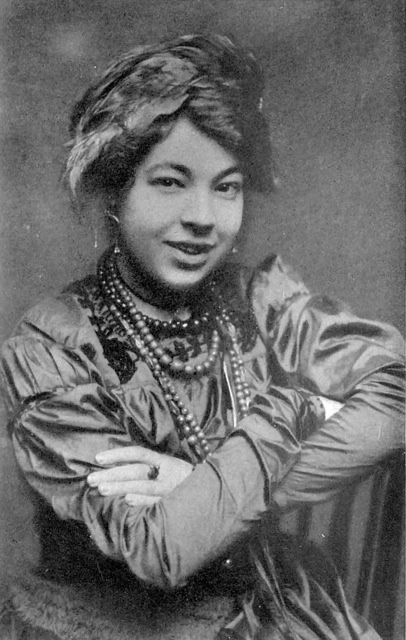The
Oracle:
When
she talks, everybody listens
by Andrew Dewar

The
Oracle:
When
she talks, everybody listens
by Andrew Dewar

|
|
|
Maerklos |
|
|
|
|
|
|
|
|
Ever since Homo sapiens
learned how to
use his brain, there has always been a
part
of man's mind that desires to know the
events
of the future -- not only so that he
can prepare for them, but also so that
his
curiosity might be satisfied. To fill
this need,
there have long been people claiming to
be
able to divine those events.
But there is also a
desire to events
of the present as well, and events
of the
unknown past. There have also arisen those
people who say they can divine these things.
As long as man is curious about the things
he does not know, there will be other
men
who will believe that they are able to
satisfy
this curiosity through mystical means.
These men and women
are the oracles, a
legendary type of person presented here
as a
new NPC class for AD&D
game adventuring.
Ancient Greeks trusted
the famous oracle
at Delphi. The traditional procedure by
which divinations were obtained involved
virgins (ceremonially called "Pythia,"
after
a serpent slain by Apollo)
who were seated
on a tripod over a rift, from which rose
thick vapors and, so the Greeks believed,
the wisdom of Apollo. The ancients had
so
much faith that they believed that whatever
the
oracle at Delphi prophesied would invariably
come true.
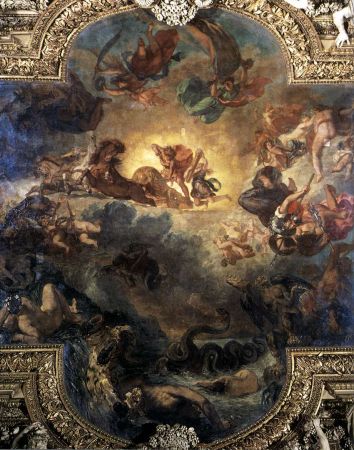
Eastern religions have
long put great
stock in oracular hermits living away
from
the people, who they believed had great
and
god-given wisdom. Such an oracle, they
felt, could tell them the truth about
their
fates and the fates of their gods.
In more modern times,
gypsy fortune
tellers have gained a rep for mystical
ability, although society is more skeptical
of
such persons than earlier civilizations
have
been. Still, there are mediums and fortune
tellers making money from people who want
to believe that oracular ability can truly
exist, and who need their curiosity satisfied
in one way or another.
In an AD&D
campaign (which, of
course, strays a long way from "reality"),
divination plays a large part in the lives
of
adventurers. A great many simple spells,
incl. all the detect spells, are
divinations.
Also, there are a number of NPC
classes that can make
predictions for paying clients: the sage,
the
alchemist,
and the astrologer. It seems that
adventurers, even more so than people
in
this real, mundane world of ours, need
to
know the future or the nature of things
unclear to themselves. Often, having this
knowledge means the difference between
life
and death.
In an AD&D™
campaign (which, of
course, strays a long way from “reality”),
divination plays a large part in the lives
of
adventurers. A great number of simple
spells, including all the Detect spells,
are
divinations. Also, there are a number
of
NPC classes that can
make predictions for paying clients: the
sage, the alchemist, and the astrologer.
It seems that adventurers, even more so
than people in this real, mundane world
of ours, need to know of the future, or
of
the nature of things unclear to themselves.
Often, having this knowledge
means the difference between life and
death.
The sage,
as outlined on pages 31-33
of the DMG, is somewhat
inadequate for making divinations.
Unless the sage’s major field is the occult
and things oracular in the first place,
he will cost the party seeking his aid
a
great deal and will be little help.
Similarly, the alchemist
(as presented
by Roger E. Moore in issue #45 of
DRAGON™ magazine) is somewhat lacking
in oracular ability, preferring to spend
his time as the sage does, buried in
books and alchemical experimentation.
Thus, he will not be able to help a party
greatly when they come to him for aid.
Most useful is Roger Moore’s astrologer
class, also presented in DRAGON
#45. The main function of the astrologer
is to make divinations; however, the astrologer
himself is limited in his abilities.
That is, he has only one method of divination
available to him, which somewhat
reduces the reliability of his predictions.
Also, the astrologer cannot use
spells, and so cannot perform even the
simplest Detect for adventurers.
The Oracle
NPC class
The following text describes the Oracle
as a new NPC class,
one which gives its members the ability
to cast spells and use certain innate
abilities
in order to make divinations and
predictions. An Oracle NPC in an adventuring
party would leave the other spellcasters
free to carry more attack and defense
spells, enhancing the characters’
chance of survival if the adventure ahead
is to be full of conflicts and combat.
The principal attributes of the oracle
are INT
&& WIS, both of
which must be 14 or higher. A high constitution
and charisma are also useful,
but these attributes may each be as low
as 6. A high wisdom score allows the
oracle to use extra spells, as follows:
| Wisdom | Extra Spells |
| 15 | 1 first-level spell |
| 16 | 1 first-level spell |
| 17 | 1 second-level spell |
| 18 | 1 third-level spell |
These bonuses are cumulative, just as
for clerics with high wisdom.
Similarly, a high intelligence score
offers special benefits to the oracle
above
and beyond the usual extra language
ability, as follows:
| Intelligence | Bonus to chance of
successful divination |
| 16 | + 5% |
| 17 | + 10% |
| 18 | + 15% |
Note that this extra chance of success
applies only to certain of the innate
abilities,
but to none of the divination spells
available to oracles.
Oracles are most often human.
Elves
and half-elves may also be of this class,
but may not rise higher than the 11th
level of experience. Gnomes and dwarves
are of a temperament not well suited to
the disciplines of oracular ability, and
half-orcs and halflings rarely possess
the mental faculties to qualify. Thus,
these last four races should be prohibited
from taking up the class.
The experience-level structure among
oracles is similar in some ways to that
of
druids and monks, in that the numbers
of
characters at certain levels is restricted.
While there may be any number of oracles
between the first and 11th levels,
there are only one each of the higherlevel
oracles.
A character wishing to rise from 11th
level to 12th (Soothsayer to Seer), after
earning sufficient experience points,
must seek out the single Seer and challenge
him or her to a game of riddles.
Dungeon Masters are referred to Patricia
McKillip’s Hed
trilogy or J.R.R. Tolkien’s
The Hobbit to see how this might be <image>
done. The winner of this game becomes
(or continues to be) the Seer, entitled
to
the possessions and abilities that go
with
the title. After a month of self-training,
a
character newly claiming the title of
Seer
will be able to use new spells and certain
innate abilities. As with other combats
of
this type, the loser returns to the minimum
number of experience points allowable
for the 11th level (630,001 xp),
and must begin to climb again. A riddlegame
may not be attempted until a Soothsayer
has sufficient experience points to
rise a level. It should be noted that
the
Seer is in a precarious position, since
there are usually many who come to
challenge him.
At 13th level and higher, there is no
competition. A position in the higher
levels becomes open only when its occupant
dies. Then the character of the
level immediately below the open position
will move up into it, provided that he
has enough experience points to fulfill
that requirement. Every lower-ranking
oracle then moves up accordingly (subject
to the experience-point requirement),
and if necessary a new Seer is
chosen by a riddle-tournament held
amongst any characters with enough
experience points to claim the position.
For example, if the Low Prophet were to
die, the Seer (if he had enough experience)
would move up to that position,
and a new Seer would be chosen from
amongst the Soothsayers.
For each position above 11th level,
there exists a vast and unique library,
containing all of the information needed
by an oracle of that level. Thus, a new
Seer would find in his newly acquired
library volumes containing the new spells
he may use, along with equipment and
instructions for his new innate abilities.
The oracles possessing these libraries
do not own them, but leave them behind
for the next oracle when they rise in
level.
Characters of 11th level and below,
though, must seek training in the same
way that characters of any other class
must. They cannot impose upon oracles
of 12th level or higher to give them this‘
training, because oracles of that much
stature are loath to waste time on such
matters.
Oracles of lower than 12th level may
carry or own whatever they wish (subject,
of course, to a few class restrictions),
and may travel about freely and
hold any faith. Only the wisest and most
intelligent of oracles ever make it to
the
higher levels, and although such advancement
is the general goal of every
oracle, most do not pursue it exclusively.
Higher-level oracles will never be kept
in the service of a single person or a
particular group of characters, but will
live in some secluded part of the world
where they will not often be disturbed.
There, they study and expand their experience
as much as they can. The lairs
of these oracles are more or less permanent
structures or enclosures, and
they come with the position; when an
oracle of high level rises, he often
changes lairs as well. Thus, people tend
to identify more with the positions and
locations of oracles than with their individual
names or identities.
In many ways, oracles are similar to
magic-users. They fight and save on the
M-U tables, they are subject to the same
weapon and armor restrictions as magicusers,
and they are able to use any device
or magic item that a magic-user can
employ. The only major difference between
the classes (apart from certain innate
special abilities) is in the way that
spells are recovered; this will be described
below.
It is possible for an oracle to be of any
alignment, although those of the highest
levels tend to be true neutral. In any
case, that is a reflection on their temperament
rather than their religious preference.
An oracle, as he progresses in
power and ability, will likely turn away
from any extreme alignment and become
more and more neutral in his outlook.
Similarly, an oracle may technically
worship any god he wishes, but will tend
to abandon his faith as he rises in level.
Divinations need not, as the name would
seem to suggest, come from a god, but
rather from the earth and the spheres.
Gods must live by the laws of the universe
in an AD&D
game, just as men and
beasts do, and thus oracles must go
“beyond the gods” to achieve their predictions.
They read things from the structure
of the universe, which exists in spite
of the gods rather than because of them,
and there they find their answers. Thus,
an oracle with an extremely fervent faith
will not be liable to advance to the highest
levels of. his class, because his interpretation
of the omens of the universe
will be slanted by adherence to his faith.
At the 5th level of experience, an ora-cle
begins to attract followers. At this point,
he will gather one or two students
of zero or first level. Upon attainment
of
each level higher than 5th, the max.
# of students is doubled; at 11th
level, a Soothsayer may have as many
as 128 students and followers of zero
or
first level, or correspondingly fewer
of
higher levels (up to 4th). When a Soothsayer
rises to Seer, however, he must
abandon his followers and they likewise
must abandon him. High-level oracles,
as mentioned earlier, lead solitary lives
and seek seclusion rather than the adoration
of followers or students.
Oracle Experience Table
| Experience points | Experience Level | 4-side
dice for accumulated hit points |
Level Title |
| 0--2,250 | 1 | 1 | Fortune Teller |
| 2,251--4,500 | 2 | 2 | Forecaster |
| 4,501--9,000 | 3 | 3 | Augurist |
| 9,001--17,500 | 4 | 4 | Anagogue |
| 17,501--33,500 | 5 | 5 | Clairvoyant |
| 33,501--60,000 | 6 | 6 | Sortiliger |
| 60,001--110,000 | 7 | 7 | Sannyasi |
| 110,001--200,000 | 8 | 8 | Medium |
| 200,001--360,000 | 9 | 9 | Pundit |
| 360,001--630,000 | 10 | 10 | Mahatma |
| 630,001--1,000,000 | 11 | 11 | Soothsayer |
| 1,000,001--1,400,000 | 12 | 12 | Seer |
| 1,400,001--1,800,000 | 13 | 13 | Low Prophet |
| 1,800,001--2,200,000 | 14 | 14 | High Prophet |
| 2,200,001--2,700,000 | 15 | 15 | Oracle |
| 2,700,001+ | 16 | 16 | Great Oracle |
Innate powers
At each level of experience, oracles
gain certain innate powers of divination.
The accuracy and usefulness of these
increase with the oracle’s level.
The following chart gives the innate
oracular abilities, the level at which
each
is first gained, and the chance of successful
divination using that ability at
that level and all higher levels of xperience.
Abilities where the chance for
success may be improved by an INT
bonus are marked by an asterisk.
| Innate ability | 1 | 2 | 3 | 4 | 5 | 6 | 7 | 8 | 9 | 10 | 11 | 12 | 13 | 14 | 15 | 16 |
| Rhabdomancy* | 15 | 20 | 25 | 30 | 35 | 40 | 45 | 50 | 55 | 60 | 65 | 70 | 75 | 80 | 85 | 90 |
| Arithromancy <cf. sage> | 08 | 11 | 14 | 17 | 20 | 23 | 26 | 29 | 32 | 35 | 38 | 41 | 44 | 47 | 50 | 53 |
| Cleromancy | - | 10 | 15 | 20 | 25 | 30 | 35 | 40 | 45 | 50 | 55 | 60 | 65 | 70 | 75 | 80 |
| Coscinomancy* | - | 12 | 16 | 20 | 24 | 28 | 32 | 36 | 40 | 44 | 48 | 52 | 56 | 60 | 64 | 68 |
| Austromancy <cf. weather sense> | - | - | 15 | 20 | 25 | 30 | 35 | 40 | 45 | 50 | 55 | 60 | 65 | 70 | 75 | 80 |
| Capnomancy | - | - | 15 | 20 | 25 | 30 | 35 | 40 | 45 | 50 | 55 | 60 | 65 | 70 | 75 | 80 |
| (combined) | - | - | 45 | 60 | 75 | 90 | 00 | 00 | 00 | 00 | 00 | 00 | 00 | 00 | 00 | 00 |
| Belomancy* | - | - | - | 15 | 20 | 25 | 30 | 35 | 40 | 45 | 50 | 55 | 60 | 65 | 70 | 75 |
| Hepatoscopy | - | - | - | 15 | 20 | 25 | 30 | 35 | 40 | 45 | 50 | 55 | 60 | 65 | 70 | 75 |
| Meteoromancy | - | - | - | - | 20 | 25 | 30 | 35 | 40 | 45 | 50 | 55 | 60 | 65 | 70 | 75 |
| Orithnomancy | - | - | - | - | - | 22 | 29 | 36 | 43 | 50 | 57 | 64 | 71 | 78 | 85 | 92 |
| Hydromancy | - | - | - | - | - | 22 | 29 | 36 | 43 | 50 | 57 | 64 | 71 | 78 | 85 | 92 |
| Hieromancy | - | - | - | - | - | - | 26 | 32 | 38 | 44 | 50 | 56 | 62 | 68 | 74 | 80 |
| Ophiomancy | - | - | - | - | - | - | 26 | 32 | 38 | 44 | 50 | 56 | 62 | 68 | 74 | 80 |
| Pyromancy | - | - | - | - | - | - | - | 30 | 38 | 46 | 52 | 60 | 68 | 76 | 84 | 92 |
| Botanomancy | - | - | - | - | - | - | - | 29 | 33 | 37 | 41 | 45 | 49 | 53 | 57 | 61 |
| (with spell) | - | - | - | - | - | - | - | 79 | 83 | 87 | 91 | 95 | 99 | 00 | 00 | 00 |
| Astromancy <cf. astrologer> | - | - | - | - | - | - | - | - | 30 | 39 | 48 | 57 | 66 | 75 | 84 | 93 |
| Horoscopy <cf. astrologer> | - | - | - | - | - | - | - | - | 30 | 39 | 48 | 57 | 66 | 75 | 84 | 93 |
| Oneirocritica | - | - | - | - | - | - | - | - | 30 | 35 | 40 | 45 | 50 | 55 | 60 | 65 |
| Lithomancy | - | - | - | - | - | - | - | - | - | 30 | 40 | 50 | 60 | 70 | 80 | 90 |
| Dactylomancy* <("Ouija board")> | - | - | - | - | - | - | - | - | - | 30 | 35 | 40 | 45 | 55 | 55 | 60 |
| Haruspicy | - | - | - | - | - | - | - | - | - | - | 35 | 50 | 65 | 80 | 95 | 99 |
| Sciomancy | - | - | - | - | - | - | - | - | - | - | - | 35 | 50 | 65 | 80 | 95 |
| Catoptromancy | - | - | - | - | - | - | - | - | - | - | - | - | 25 | 40 | 55 | 70 |
| Licanomancy | - | - | - | - | - | - | - | - | - | - | - | - | - | 40 | 60 | 80 |
| Gastromancy | - | - | - | - | - | - | - | - | - | - | - | - | - | - | 70 | 95 |
| Crystallomancy | - | - | - | - | - | - | - | - | - | - | - | - | - | - | - | 99 |
Explanations of innate abilities
Rhabdomancy:
This is the art of dowsing
for water
|| oil, or for metals of various <also, cf. DSG, Underground
Waterways>
types. Any forked wooden stick may
be used, although hazelwood works best
(+1% to chance of success per level of
oracle).
The stick is held by the prongs with the
palms of the hands facing upward and
horizontal to the ground while the ends
of the prongs project outward. The pointing
end of the stick should be slightly
elevated above horizontal. When water,
or oil or metal, are directly beneath
the
rod, the end will force itself downward
to
indicate the presence of the substance.
Oil or water will be located by a simple,
bare wooden rod, but metals can be
found by dowsing only if a bit of the
metal sought is attached to the pointing
end of the stick. Any metal of a nonmagical
nature can be dowsed for; however,
metal which is used for currency or
is valuable because of its rarity is located
at a penalty of 10% to the chance for
success. Iron, other common metals and
common alloys (bronze, brass, etc.) can
be found at no penalty.
Arithomancy:
This, in essence, is numerology.
An oracle will assign numbers
to the letters in the name of a person,
place or thing and make a divination
about the nature of the thing so named
and “numbered.” This prediction will re-
veal, to some extent, whether the person,
place or thing is good or evil, and whether
it involves good fortune or bad. This
ability incorporates the skills of onomancy,
which considers the letters in a
name themselves rather than the numbers
they may represent.
Cleromancy:
This is divination by lots.
An oracle practicing this ability would
cast down a number of small dice or tiny,
marked bones, and make a prediction
from the numbers that turn up. A successful
divination will tell the oracle
whether the characters asking for the
divination (or himself, of course) will
have good or bad fortune in the next
w e e k .
Coscinomancy:
This is a method that
an oracle may use to determine the guilt
or responsibility of a known character
in
causing a known event. The oracle will
balance a small
brass sieve on two fingers,
or on the points of a pair of shears
(+5% to chance of success for any level
of oracle), and then describe the event
(a
crime, usually). After that, the names
of
characters suspected of causing the
event or committing the crime are spoken
before the balancing sieve. If the divination
is successful, and the name of
the guilty character is spoken, the sieve
will begin to wobble at that time, indicating
guilt.
Austromancy:
This means of divination
allows the oracle
to know whether
the fortune of a
character will be good or
bad during the next
week by studying
the winds and the
movements of clouds
for a day.
Capnomancy:
This method of divination
achieves the same
effect as austromancy,
but the determination
is through
a day’s study of
the movements of smoke
(in still air).
During this time, a smoky fire
must be maintained
for the oracle.
If austromancy and
captomancy are
combined at the
same time and in the
same effort, the
effects and length of
time required remain
the same, but the
chance of successful
divination triples.
Belomancy:
This, like cleromancy, is a
form of divination by lots; however, it
uses arrows
or notched sticks instead of
dice. Answers to a question posed by a
character are written on the arrows, and
these, along with a single blank arrow,
are placed in a bag. If the divination
is
successful, and the correct answer is
among those written on arrows, the oracle
will draw out of the bag the arrow
with the correct answer. If the divination
is not successful, though, the blank arrow
will be drawn. Any arrow drawn from
the bag after the first one will be blank,
regardless of the number of blank arrows
first placed in the bag. No question
may be asked more than once; arrows
for repeated questions will always be
blank.
Hepatoscopy:
This method of divina-
tion uses the examination of the livers
of
lower animals to determine the fortune
of characters. The chance of success is
adjusted according to the size and physiological
complexity of the animals used
— but in no case may any creature of
higher than animal intelligence
be used.
Birds && fish may be used at -25%
to the
chance of success, small animals and
monsters at -15%, man-sized animals
and monsters (as well as sheep and
goats) with no adjustment, and large
animals and monsters at +15%. Animals
or monsters who are examined must be
killed by the oracle just before attempting
the divination; creatures already dead
may be used, but at -70% to the chance
of success.
<cf. TERMINATOR:
SALVATION>
<cf. liver extraction
of Falun Dafa peeps>
< >China(52):
Make a stand. Leave the G20>
<Reclaim your
culture, your Land, your People>
<http://www.redlist.org>
<NIN>
Meteoromancy:
The study of meteors
by an oracle may foretell the favor of
a
god, the fortune of a character, or the
occurrence of an important event. This
method of divination allows the oracle
to
know not only which of these omens the
sighted meteors represent, but (with a
small degree of accuracy) what the event,
fortune, or disposition is. In any case,
the
oracle must spend a week studying the
skies before he may make the divination.
Ornithomancy:
This method of divination
allows the oracle to determine
whether a character’s fortune in the coming
week will be good or bad. The oracle
must spend a day studying the movements
of birds before attempting a
prediction.
Hydromancy:
Except that the oracle
must spend a day
studying the movements
and currents in
running water or
the tides, this
method of divination is the
same as ornithomancy.
Hieromancy:
This is a divination of fortune,
or of the favor of a god, through the
study of holy objects. If the oracle making
the divination is of the faith to which
the object studied is holy, there is an
additional 10% to the chance of success.
Ophiomancy:
This is divination through
the study of serpents — that is, snakes
—of any type (lizards, dragons,
and other
reptiles are excluded). After a day of
study, the oracle may make a prediction
about the fortune of a character for the
coming week.
Pyromancy:
This is divination through
fire. An oracle
will be able to make a
prediction about
the fortune of a character
for the next week
after studying the
flames of a fire
for an hour. The chance
of success is adjusted
according to the
size and nature
of the fire. A small flame,
such as a candle,
allows the oracle to
divine at -10%,
while a normal fire is unadjusted,
and a large fire
(such as a pyre
or a burning building)
gives +25%. If
dung is cast into
the flames, there is a
-5% to the chance
of success, but if incense
is burned, there
is a +10% chance.
Botanomancy:
This is a form of divination
through the study of plants. After a
day of studying living plants, the oracle
may make a prediction about the fortune
of a character during the next week. If
botanomancy is combined with a Speak
with Plants spell, the chance of successful
divination is increased by 50%.
Another method of botanomancy, similar
to belomancy, involves the writing of
answers to a question on the leaves of
a
plant. The oracle then cuts these leaves
free and exposes them to the wind. If
the
divination is successful, and the correct
answer is among those submitted, the
wind will blow away all leaf-answers but
the correct one. If the divination is
unsuccessful,
no answers will be left behind
by the wind, and those blown away
will be irretrievable. Note that in this
second
method of botanomancy, the Speak
with Plants spell will not change the
chance of success.
Astromancy
and Horoscopy:
These
two methods of divination are essentially
the same, the former being a study of
the
stars and the latter a study of star charts.
They allow an oracle to determine the
fortune of a character for the next week,
and with fair accuracy the type of events
that will befall him. In both cases, a
full
night of study by the oracle is required
in
order for the divination to have a chance
of being successful.
Oneirocritica:
This is a divination made
through the interpretation of dreams and
visions. After a night of successful
dreaming, an oracle may predict an event
that will happen in the next two days,
with fair accuracy. The chance for success
roll indicates both that a dream or
vision was had by the oracle, and that
it
was interpreted correctly. If a character
relates a dream or vision to an oracle
with oneirocritical ability, there is
a basic
chance of 10% plus 5% per experience
level of the oracle that it will be interpreted
correctly. Events of the past and
present may also be divined this way;
the
chance of an event dreamed being in the
future is 85%, the chance of it being
in
the past is 10%, and in the present, 5%.
Lithomancy:
This is a method of determining
the fortune of a character, or
the nature (good or evil) or fortune of
a
different person or place. The oracle
will
cast down a number of pebbles and then
study the patterns formed by them. Similar
to lithomancy is geomancy, in which
dots are drawn randomly on a scrap of
paper and the patterns then read by the
oracle. Geomancy also allows the oracle
to divine things by reading the patterns
in cracks in the ground.
Dactylomancy:
This method of divination
divination
involves the use of a device similar
to a Ouija board. The character requiring
knowledge asks the oracle a question,
and the answer is spelled out by a fingerring
suspended over a ring of alphabetic
letters. The answer will likely be cryptic,
but occasionally, as in the case of a
name or a simple affirmation, the answer
will be concise and clear. A lack of success
in the divination is indicated by a
lack of movement by the ring. A question
may be asked only once; if the divination
fails for that question no answer may
ever be determined, even if the question
is reworded.
Haruspicy:
This method of divination
is almost the same as hepatoscopy, except
that it is more precise, telling in fair
detail what the major events of the next
two days will be (death, for example,
or a
complete loss of money), if any major
events will occur, and may only be performed
with the entrails of non-intelligent
animals and monsters of 6 or more hit
dice. The entrails of the victim are cut
out
and cast randomly on the ground, and
the twistings and patterns formed by
them are studied by the oracle. Animals
not killed by the oracle himself may be
used, but at a penalty of -50% to the
chance of success.
Sciomancy:
Similar to the Speak with Dead
spell,
this method of divination allows
the oracle to determine the truth
about an event in the past or present,
by
speaking with the spirit (the body need
not be present) of a deceased character.
Only one event may be discussed, although
as many questions may be asked
of the spirit as are necessary to clarify
the answer.
Catoptromancy:
This is divination by
means of reflections and mirrors. Events
of the past (60% of the time), present
(15%) or future (25%) may be divined
precisely by the oracle after an hour
of
mirror-gazing. Random events are reflected
in the mirror for the oracle to see.
Silver mirrors allow a +10% bonus to the
chance of success when depicting events
involving death.
Licanomancy:
This is the ability of divination
through the study of reflections
in a vessel of still water. A drop of
oil may
be added and the resulting patterns studied;
this is called scyphomancy. Or, the
motions and figures in a pot of molten
lead may be studied also; this is called
molybdomancy. The oracle, after an hour
of study, is able to make an accurate
divination of an event occurring in the
past, present, or future, which he is
able
to specify 20% of the time. The use of
either holy or unholy water will give
+10% to the chance of success. Events
seen in holy water tend to be pleasant,
and those seen in unholy water tend to
be dire.
Gastromancy:
This ability is divination
through the observation of figures in
sealed glass jars. Two sets of these jars
exist; one is in the possession of the
single
oracle, and one in the possession of
the Great Oracle. The five jars of each
set
are cobalt blue in color and vary in
height from two inches to two feet. A
specific event of the past, present, or
future
may be requested by the oracle, and
50% of the time, this will be the one
depicted.
Otherwise, the event shown will
be random. If the divination is unsuccessful,
the jars will remain empty, but if
a successful divination is made, a series
of cryptic figures and depictions will
appear
in the jars. The jars themselves are
not magical.
Crystallomancy:
By this method, the
Great Oracle is
able to divine, with only a
5% chance of failure,
any event occurring
in the past, present,
or future. This
event may be chosen
by the oracle 80%
of the time; otherwise
it will be random.
The oracle consults
a crystal globe
(which is non-magical),
and sees in it a
series of figures,
or depictions of people
and events, which
he may then interpret
to make a divination.
General guidelines
on divination
Innate abilities are available to an oracle
whenever the proper equipment and/
or materials are present.
The die roll made for each divination
indicates only whether or not the oracle
was able to get a clear impression, and
does not guarantee the absolute accuracy
of that impression. If a divination is
found to be unsuccessful, then the oracle
was unable to receive any impression
about the question posed him; however,
he will require payment in return for
even
a failed attempt.
The accuracy of a prediction depends
more upon the experience level of the
oracle involved than on the method used
to make it. Thus, predictions made by
higher-level oracles will tend to be more
precise than those made by low-level oracles,
even in the case of a simple reading
of a fortune. Higher-level oracles will
be relatively more specific in their divinations
when the attempts succeed.
It should be noted, though, that divinations
made by any oracle to be a little
difficult to understand, or at least should
be able to be interpreted in several ways,
so that player characters are not able
to
take advantage of the oracle to know
with great precision and accuracy what
will happen in a campaign. An element
of
mystery should be maintained, and so
oracles ought to respond in verse or in
generalities rather than in straightforward
terms. Players should have to interpret
the words of the oracle in order to
benefit from them.
On the other hand, predictions of the
future that are correct (such as the death
of a character, if such is indicated),
should always come true. Even if a character
takes precautions against a prediction,
it should still occur. Once an oracle
makes a prediction that the DM and the
dice say is true, it happens. Similarly,
events of the present and past must have
taken place, if they were described correctly
by an oracle.
In cases where the oracle receives visions
and impressions of things that he
did not request (especially among the
higher-level abilities), the origin of
those
impressions will be unknown to the oracle.
That is, he may request to know
about the death of a certain character
in
the future, but if he receives impressions
of an earthquake instead, he will not
know whether the earthquake occurred
in the past, is now occurring, or will
occur
in the future, or where it will take
place. Such events should be created
randomly by the DM, and may in fact be
events that have already occurred to the
character requesting knowledge from
the oracle. In any case, they should not
be events of any great importance to the
campaign, lest they disturb the balance
of the game.
Furthermore, if the revealing of certain
information would tend to badly unbalance
the game and lessen the enjoyment
of the players, the DM should not let
the
information out, despite what the dice
may tell him.
The price that an oracle will ask for a
divination is high, and costs increase
as
the level of ability increases. Usually,
the
price asked will be 100 gp times the level
of the ability squared, plus or minus
a
little according to the wishes of the
DM.
Thus, a simple dowsing for water would
cost 100 gold pieces (100 x (12) = 100),
while a gastromantic prediction might
cost around 22,500 gold pieces (100 x
(152) = 22,500).
Spell casting by
oracles
Oracles have the ability to cast both
divination magics and some necromantic
spells. These they acquire through
meditation, in the same way that clerics
and druids recover their spells, although
all of their spells do exist in a written
form.
The prices that an oracle will charge
for spell casting will be the same as
those
charged by any other class of spellcaster
for the same activity. For example,
the DMG outlines on page 103 and 104
some suggested prices for clerical spells;
oracular spell prices will be in this
range.
Spells unique to the oracle class are
described after the spell list which follows,
and spells taken from the Players
are referenced according to the level
and
class which apply.
Spells usable by class and level: Oracles
| 1 | 1 | - | - | - | - | - |
| 2 | 2 | - | - | - | - | - |
| 3 | 2 | 1 | - | - | - | - |
| 4 | 3 | 2 | - | - | - | - |
| 5 | 3 | 3 | 1 | - | - | - |
| 6 | 4 | 3 | 2 | - | - | - |
| 7 | 4 | 4 | 2 | 1 | - | - |
| 8 | 5 | 4 | 3 | 2 | - | - |
| 9 | 5 | 5 | 3 | 2 | 1 | - |
| 10 | 6 | 5 | 4 | 3 | 2 | - |
| 11 | 6 | 6 | 4 | 3 | 2 | - |
| 12 | 7 | 6 | 5 | 4 | 3 | 1 |
| 13 | 7 | 7 | 6 | 5 | 4 | 3 |
| 14 | 7 | 7 | 6 | 5 | 4 | 3 |
| 15 | 7 | 7 | 6 | 5 | 4 | 4 |
| 16 | 7 | 7 | 7 | 6 | 5 | 5 |
Oracular spells
<# tables>
Spell descriptions
1st level
detect
evil: c1 + <>
detect
illusion: i1 +
detect
invisibility: i1 +
detect
lie: c4
detect
magic: mu1
detect
snares and pits: d1
identify:
mu1
know
alignment: c2
locate
animals: d1
predict
weather: d1
read languages:
This spell is essentially
the same as the thief
ability. The caster is
able to read any language for the duration
of the spell (5 rounds/level), excepting
magical languages. He is not able to write
the language, though, or speak it.<>
read magic:
mu1
2nd level
augury:
c2
cure
light wounds: c1
detect
charm: c2
detect
poison: This spell will detect
the presence of a poison or venom on or
in any item, if such substance is present.
The caster must touch the item on which
the spell is being cast in order to detect
the venom. Note that the spell provides
no immunity to the poison, and a save
vs.
poison must be made as usual if contact
poison is touched.
esp: mu2
find
traps: c2
Guidance:
This spell answers simple
questions concerning the fortune of a
character or party. One general question
may be asked, and the caster will intuitively
know the answer. The questions
asked should not be specific, but of the
“Will we be alive tomorrow?” or “Will
we
be rich if we survive this adventure?”
type. The spell may be cast once per day.
Know Languages:
This spell expands
on the Read Languages spell, allowing
the caster to understand spoken language
as well. It still does not allow him
to communicate in that language, though,
or to understand magical languages.
The spell lasts for 3 rounds/level.
locate
object: mu2
locate
plants: d2
Omen I: This
spell simply allows the
caster a greater chance of success when
making a divination through one of his
innate abilities. This extra chance is
10%.
Theoretically, speaking this spell increases
the caster’s ability to see and
interpret correctly the various omens
in
his divination.
slow
poison: c2
3rd level
[animate dead]: c3
[clairaudience]: mu3
[clairvoyance]: mu3
Divine truth
[feign death]: c3
Metal and mineral detection
[speak with animals]: c2
[speak with dead]: c3
Sympathetic magic I
[tongues]: c4
Divine Truth: This spell allows
the caster
an 80% chance to determine the truth
about something, by placing in his mind
a series of figures and images that he
may interpret. The spell works only for
one question, and then dispels. Any
question may be asked, but it is recommended
that as the questions grow in
complexity the answers become more
allegorical and cryptic.
Metal
and Mineral Detection: This spell
acts as the Wand of the same name, allowing
the caster a better chance of locating
metals and minerals than his rhab-
domantic skill does. Thus, any metal or
mineral may be detected without fail
within the duration of the spell (1 round
per level).
Sympathetic Magic I: This spell
allows
the caster to make a divination about
a
specific person or thing, provided that
some portion of that person or thing is
available to the caster. This item, which
should be something like a lock of hair
or
a set of fingernail parings, is a material
component of the spell, and disappears
when the spell is cast. The spell allows
the caster to know the location and condition
(dead or alive, good or evil, etc.) of
that person or thing, although these are
only roughly perceived. The spell has
a
duration of 1 round per level.
4th level
[commune with nature]: d5
[divination]: c4
Divine past
Omen II
[speak with plants]: c4
[stone tell]: c6
[vision]: i7
[wizard eye]: mu4
Divine Past: This spell lets the
caster
divine with reasonable accuracy an event
that happened in the past. This event
may be specified by the caster, but the
chance of seeing a random event instead
is 100% minus 5% per level. The spell
will
fill in the details of a single event,
and
identify the characters in it, as well
as the
sequence of events. If the event is chosen
by the caster, the relative age of it
should be considered; casters of 7th and
8th level may see only events happening
within the past week; casters of 9th to
11th level can see events a month old;
and casters of higher level can see any
event less than a year old. After the
oracle
sees sufficient impressions (in the
form of figures and depictions) to let
him
interpret the event, the spell dissipates.
Omen II: This spell is similar to
Omen
I, except that the extra chance of success
is 20%.
5th level
commune:
c5
[cure critical wounds]: c5
Divine present
[legend lore]: mu6
Hide
[speak with monsters]: c6
Sympathetic magic II
[true seeing]: c5
Divine Present:
This spell is essentially
the same as the Divine Past spell, except
that the events divined are occurring
as
the spell is cast, or occurred in the
past
1-4 turns. One event may be divined, in
the same manner as with the Divine Past
spell, and the chance of seeing the desired
event is the same.
Hide: This spell
is essentially the same
in effect as the Amulet
of Proof Against Detection and Location.
For the duration of the spell, which is
2 turns per level, the
caster may not be detected or located
by
any magical means, including the Seek
and Sympathetic Magic spells. As well,
he will not appear in divinations made
about the time during which the spell
is
in effect, whether made in his past, present,
or future.
Sympathetic
Magic II: Similar to Sympathetic
Magic I, this spell allows the
caster to make divinations about a person
or thing with only an item closely
associated to that person or place, such
as a familiar or a bulb grown there, as
a
material component. This component
disappears when the spell is cast. This
spell allows more precise divinations
about locations and states, as well, and
the duration is increased to 3 rounds
per
level. Also, the spell allows the caster
to
exercise a certain amount of control over
the object of the spell, in a manner similar
to a Charm spell, although this control
will be lost if the caster tries to force
the subject to endanger itself. Note that
this spell can only be used in the present,
and cannot change the past or shape the
future.
6th level
contact
other plane: mu5
Divine future
[heal]: c6
Memory
Omen III
[raise dead]: c5
[reincarnate]: d7
Seek
Divine Future:
This spell is similar to
the other “Divine” spells, except that
it
allows the caster to divine an event that
will happen in the near future (1 turn
to 1
day). The mind of the caster is filled
with
figures and depictions, from which he
may interpret the event. He may choose
the event, but the chance of seeing it
is
the same as for the other “Divine” spells.
Once a divination has been made, the
spell dissipates.

This spell allows the caster to
absorb the memory of a person or thing
(cf. Legend
Lore) by speaking the spell
and then touching the thing. If the thing
touched is living, the touch causes its
memory to be wiped blank; instincts,
however, are not absorbed. There is a
20% chance that the spell will work in
reverse, transferring to the person or
thing the memory of the character, thus
wiping out the caster’s memory. In this
case the caster must make a system
shock roll or become insane; the person
(but not thing, obviously) receiving the
memory must also do so. Once the memory
has been absorbed, the character
must decide what sorts of things he
wishes to remember, since 80% of the
memory will vanish after 6 turns, <>
Omen III: This
spell is similar to the
other two Omen spells, except that the
extra chance of success that it gives
is
30%.
SCHOOL:
LEVEL:
RANGE:
DURATION:
COMPONENTS:
CASTING TIME:
SAVING THROW:
AREA OF EFFECT:
Seek: This spell
is borrowed from the
Witch non-player character class, as presented
in issue #43 of DRAGON magazine. <(The
Witch, Dragon 114)>
The spell description reads, “By
casting this spell, a Witch immediately
gains the ability to determine the location
of any single item, place, or creature
and visualize all major aspects of its
immediate
surroundings (within 5”). She
will be able to tell generally in what
part
of a world or area the thing being sought
exists, and the closer she actually is
to
the thing being sought, the more definite
her general idea will be. The spell may
be
used by a Witch for her own benefit, or
she may be induced to cast it on behalf
of
another character or creature, as long
as
that individual is of the same specific
alignment as the Witch...” An oracle
need not be that particular about alignment,
but will demand to be well paid.
Since no duration was given for this
spell, I recommend that it last 5 rounds
per level.
SCHOOL:
LEVEL:
RANGE:
DURATION:
COMPONENTS:
CASTING TIME:
SAVING THROW:
AREA OF EFFECT:
SCHOOL:
LEVEL:
RANGE:
DURATION:
COMPONENTS:
CASTING TIME:
SAVING THROW:
AREA OF EFFECT:
ROGUES' GALLERY: ORACLES
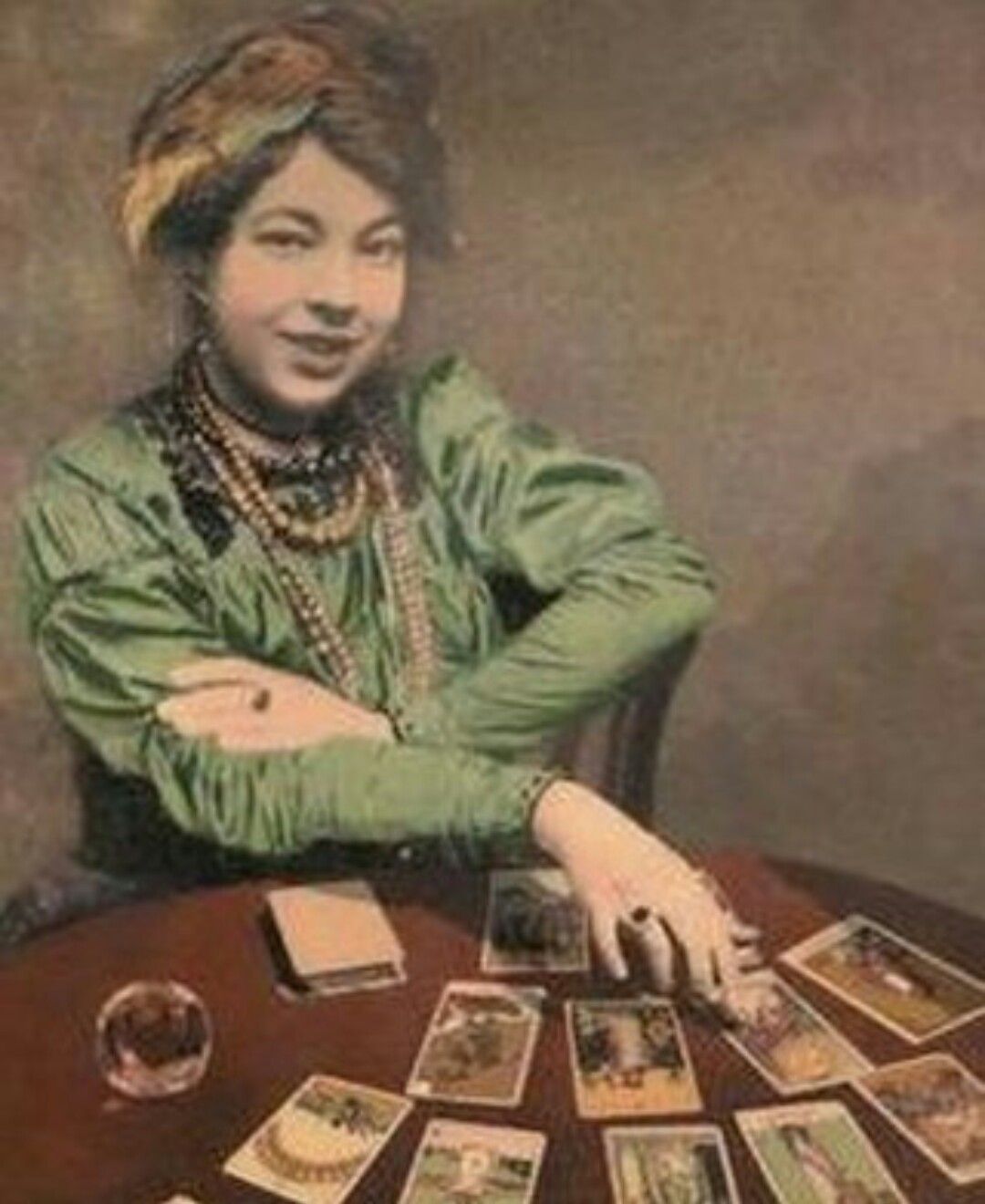
zb
28.
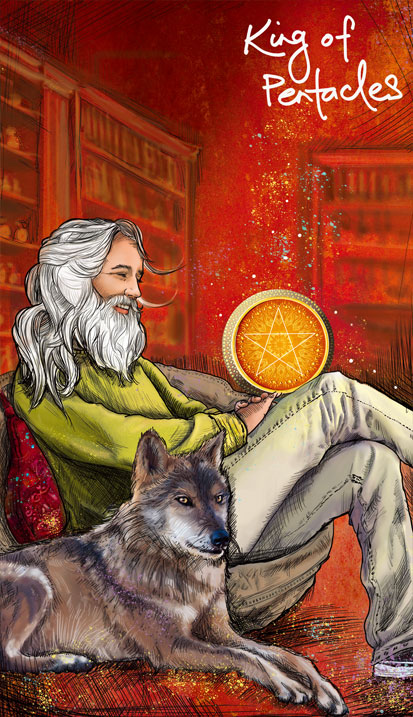
27.
Giatl (diviner 18; 92.704)
26.
Balmira the Seer (female elf)
25.
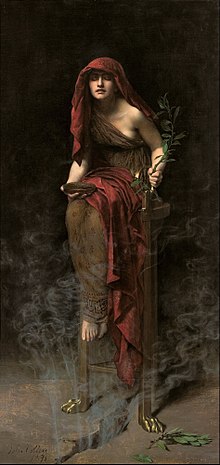
24.
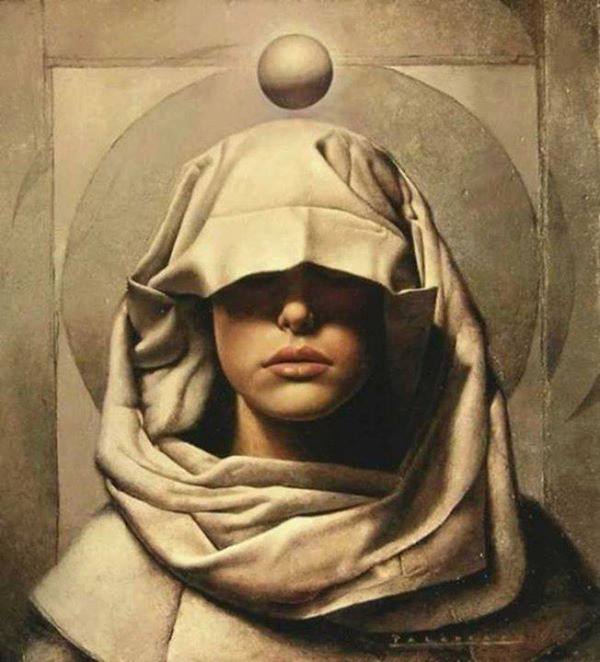
Prophet
23.
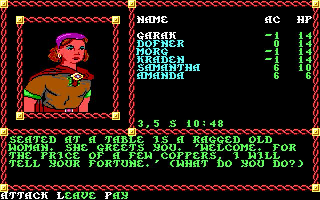
22.
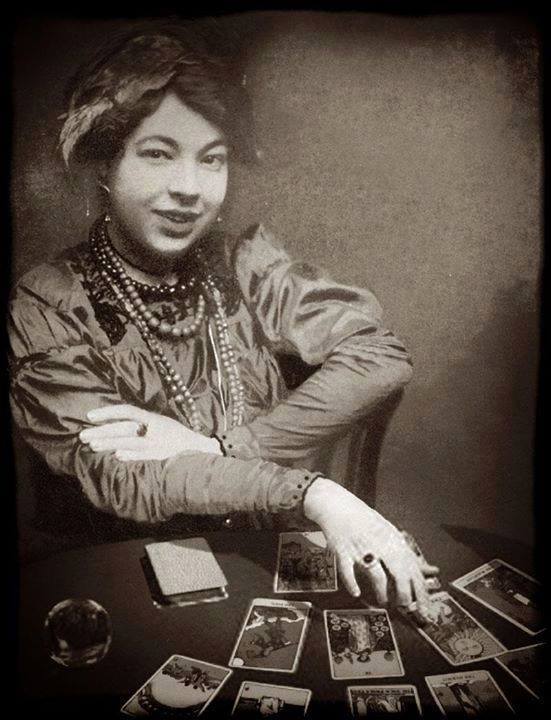
21.
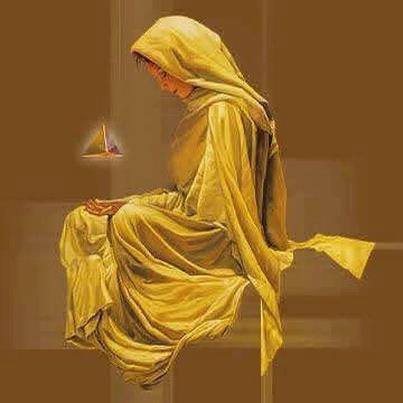
20.
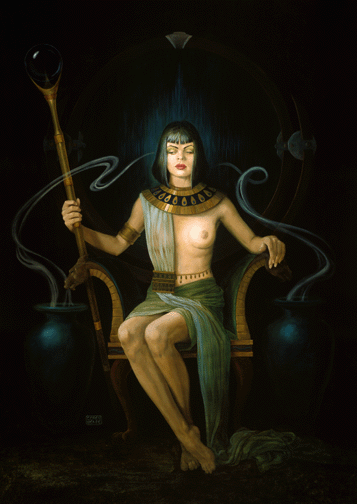
19.
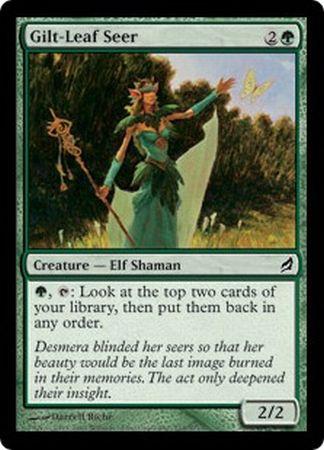
18.
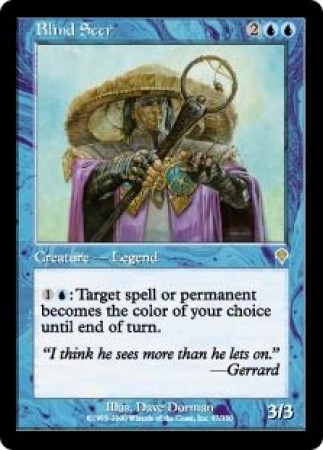
17.
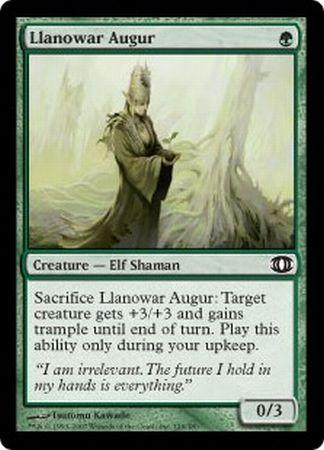
16.
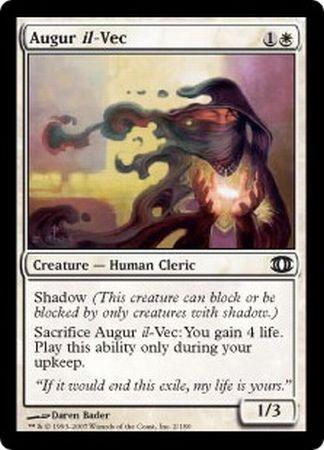
15.
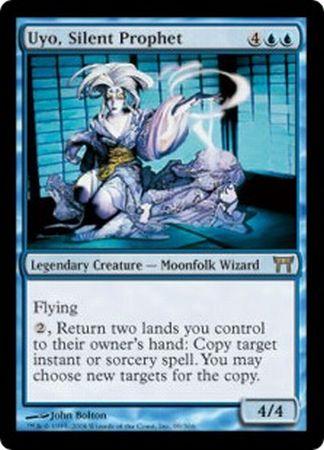
14.
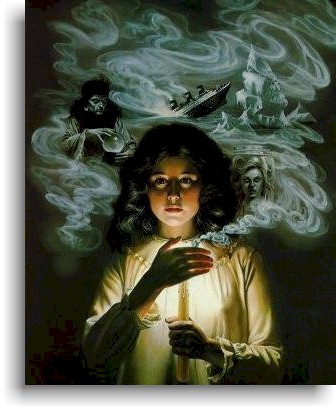
13.
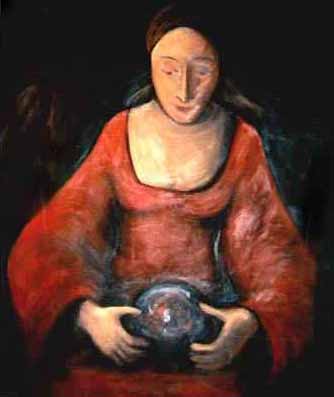
12.
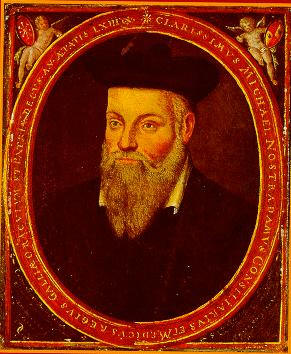
11.
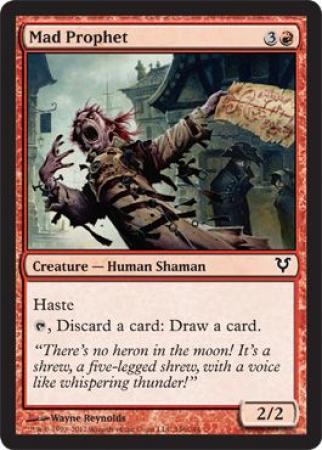
10.
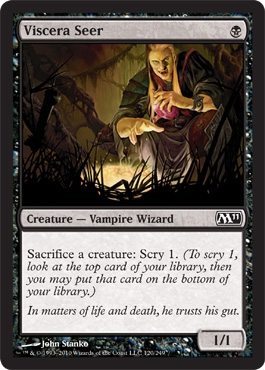
9.
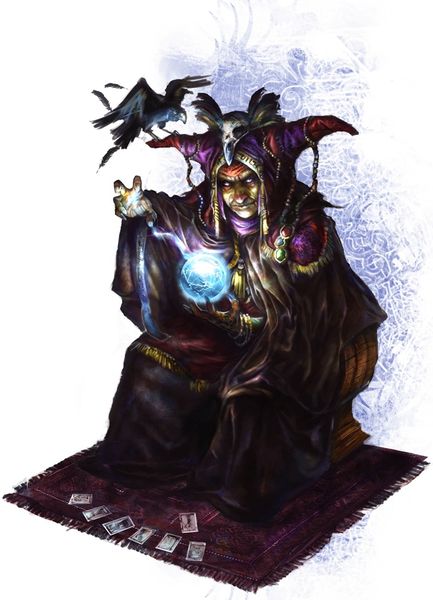
Fortune Teller
8.

Prophet
7.
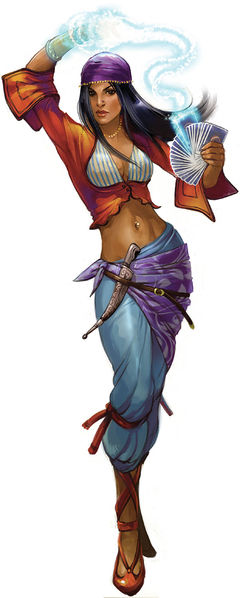
6.
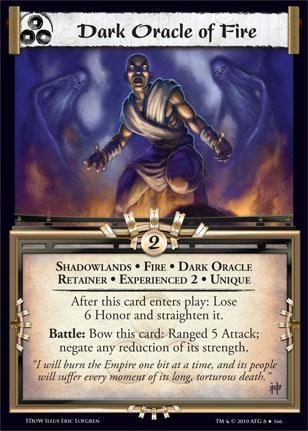
5.
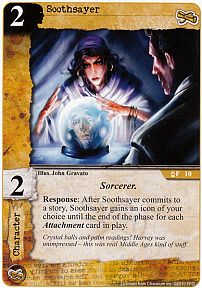
4.
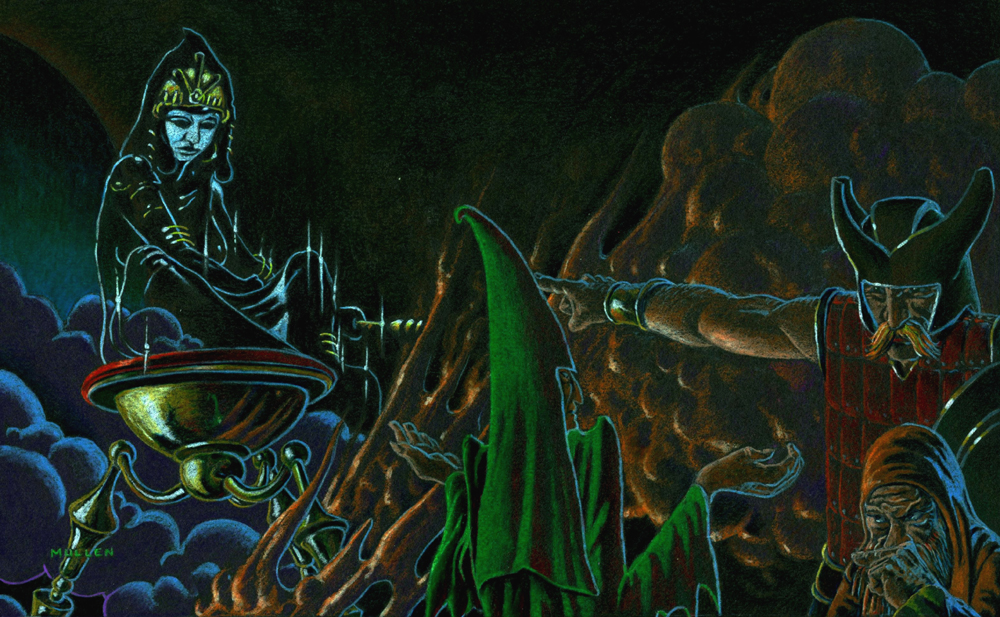
3.
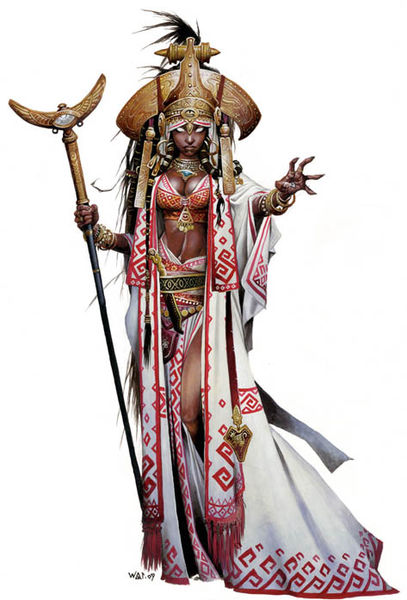
Alahazra
2.
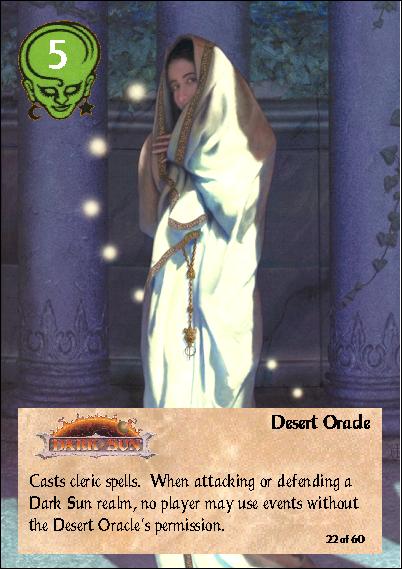
1.
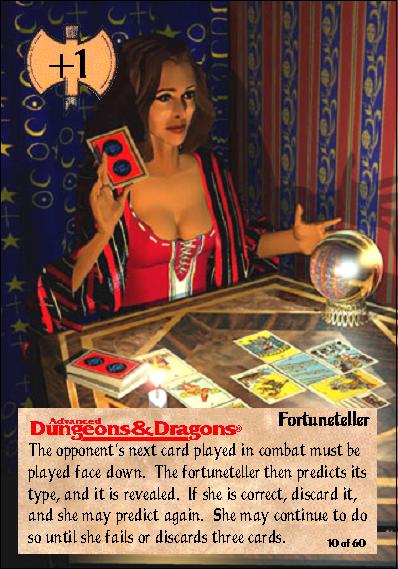
1. SUBCLASS =
2. SOCIAL CLASS MINIMUM =
3. ABILITY SCORE MINIMUMS
STRENGTH =
INTELLIGENCE = 14
WISDOM = 14
DEXTERITY =
CONSTITUTION = 6
CHARISMA = 6
COMELINESS =
PERCEPTION =
4. POSSIBLE RACES & MAX. LEVEL ATTAINABLE
= human, elf (11), half-elf (11)
5. MULTI-CLASS POSSIBILITIES =
6. HIT DIE TYPE = d4
7. MAXIMUM NUMBER OF HIT DICE = 16
8. SPELL ABILITY =
9. ARMOR PERMITTED =
10. SHIELD PERMITTED =
11. WEAPONS PERMITTED =
12. OIL PERMITTED =
13. POISON PERMITTED =
14. ALIGNMENT =
15. STARTING MONEY =
16. WEAPON PROFICIENCIES =
17. NON-PROFICIENCY PENALTY =
18. NON-WEAPON PROFICIENCIES =
19. STARTING AGE =
20. COMBAT =
21. SAVING THROWS =
22. MAGIC ITEMS =
NAMES
10. Lydia Silentshaft,
The Gypsy Queen (Thanks: Steve Eutzy)
